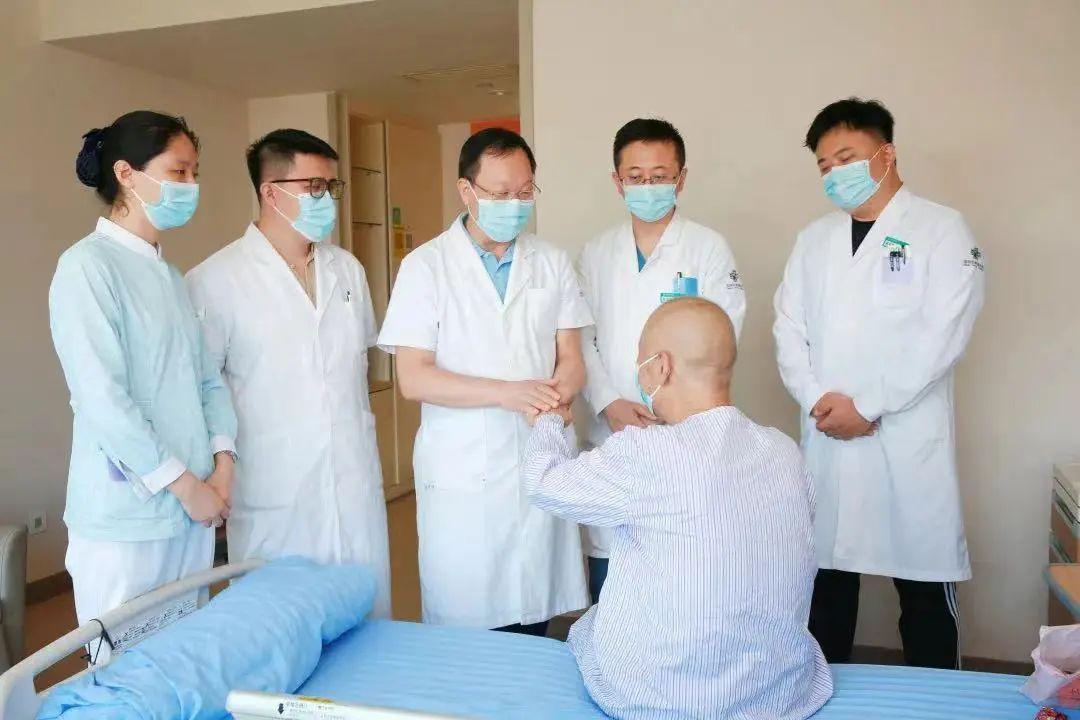On June 24th, the Boao Super Hospital in the Lecheng Pilot Area successfully implemented Yttrium 90 microsphere treatment for three liver cancer patients. The surgery was completed by experts from Hainan Provincial Cancer Hospital and Boao Super Hospital. Since the completion of the first batch of clinical application of Yttrium 90 glass microspheres in China last month, Boao Super Hospital has completed 6 cases of clinical treatment with Yttrium 90 glass microspheres. This time, 3 cases were treated on the same day, marking the normalization of clinical treatment with Yttrium 90 glass microspheres at Boao Super Hospital.
The three patients in this study are from Hebei, Hainan, and other regions. One of the patients, Mr. Li, was unfortunately diagnosed with liver cancer six months ago. The tumor was huge and had a diameter of 8 centimeters. Even more tricky is that the tumor grows deep in the liver hilum, with important blood vessels such as hepatic artery, portal vein, and inferior vena cava distributed around the tumor, which are extremely complex.
At present, the most effective method for treating liver cancer is surgery. However, because the tumor is huge and adjacent to many important blood vessels, surgery cannot completely remove the tumor. If the tumor remains, it is highly likely to recur after surgery.

Mr. Li visited multiple hospitals in an attempt to try other minimally invasive treatment methods commonly used for liver tumors, such as radiofrequency ablation and vascular embolization, all of which were abandoned due to the high risk and difficulty of the surgery. In order to control his condition, Mr. Li chose conservative treatment with conventional drugs. But after more than a month of treatment, the results were unsatisfactory, with the tumor continuing to grow and the number of tumor markers rapidly increasing.
The treatment has reached a 'stalemate'. Mr. Li learned through the news that the innovative treatment technology for liver cancer - yttrium 90 internal irradiation therapy has been specially introduced to Hainan. Therefore, accompanied by his family, he traveled a thousand miles from Henan to Hainan Cancer Hospital and Boao Super Hospital to seek yttrium 90 treatment.
Professor Niu Huimin, Director of the Interventional Department of Hainan Cancer Hospital, introduced that Yttrium 90 belongs to the technology of internal irradiation for liver cancer. Through intervention, microspheres containing "nuclides" are delivered to the interior of the tumor, utilizing β Radiation, precise and efficient in killing cancer cells, has therapeutic properties that are not limited by tumor type, size, location, etc.
Domestic research has shown that yttrium 90 radiation therapy breaks through many limitations of traditional treatment and provides more ideal treatment options for various types of liver cancer patients, especially for patients with mid to late stage liver cancer, creating surgical treatment opportunities.
Li Jiangfeng, Director of Hepatobiliary Surgery at Boao Super Hospital, stated that compared to traditional treatment methods for liver cancer, Yttrium 90 has many advantages: firstly, it does not cause significant damage to most liver tissues; The second is to minimize the damage to non target radiation; The third is that the resection effect can be achieved through radiation; The fourth is conversion therapy to increase the chances of radical surgery; The fifth is to extend the survival period and improve the quality of life.